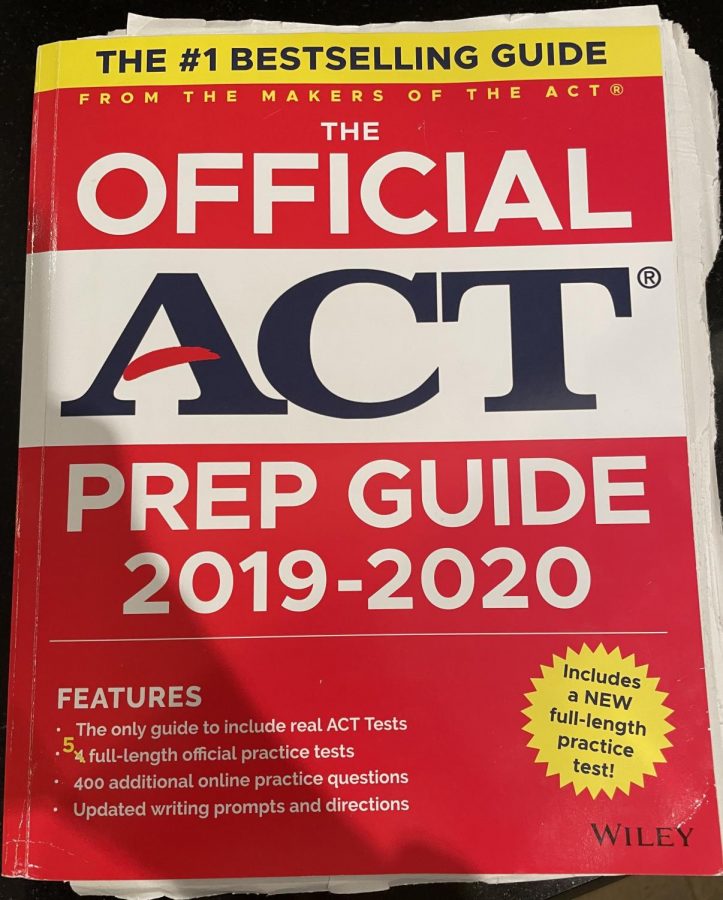Standardized testing is cancelled, forever
ACT and College Board’s poor Covid-19 response should be the final nail in the coffin for the outdated college readiness tests.
For years there has been debate over the effectiveness of the ACT and the SAT to test for college readiness. Many point out the the test is inconsistent and inequitable, and that there are better ways to predict the future success of a student.
Throughout Covid-19, both the ACT and the College Board have done a poor job communicating with students about test cancellations and location changes, while long call waits have made it difficult to ask questions about reschedules and refunds. Additionally, many colleges have gone test-optional, proving that it is possible to evaluate students without the tests. Going forward, the ACT and SAT should be abolished and colleges should evaluate students based on GPA, course rigor, recommendation letters, personal essay, and involvement.
The ACT and SAT are inconsistent. Often, the difficulty of the test varies from testing date to testing date, leaving the fate of a student partially up to luck. The companies try to account for this by curving the tests, but the curves can be affected by factors such as whether more juniors or seniors are taking the test. For example, the curve in the month of December may be easier than the curve in September because many colleges have their applications due in December, making the December date too late for seniors. Inconsistencies also lie in testing environments. For example, it is impossible for the ACT or SAT to ensure that each test proctor is starting and stopping each test section at the correct time. Additionally, some testing environments are better lit than others and some may have distractions. During a timed test, the smallest distraction–even a kid in the room with a sniffle–can get you off track.
Cotter student Aubrey Williams has experienced an unfair inconsistency while taking the ACT. “My proctor wrote the incorrect start and stop time on the board during my test. The board said 12:35, but she cut us off at the correct time, 12:30. This threw off my timing,” Williams said.
The ACT and the SAT are inequitable, because your financial situation can affect how many times you are able to take the test and how well you can prep for the test. According to the ACT website, the test costs $46 without writing and $62 with writing. The ACT does provide fee waivers, but only for those who already receive some kind of documented federal financial assistance. This leaves many people still unable to afford taking the ACT more than once, when others can easily afford to take it over and over. Prep courses are also incredibly expensive. College Census cited Princeton Review as the top ACT prep program. Unfortunately, this program will cost you $599 to $1599, depending on the course you sign up for. Many cannot afford this expense, giving those from wealthy families an unfair advantage.
There are better ways to test college readiness than a four hour test. Many students have test anxiety, making the ACT an inaccurate indicator of their future success. The sheer length of the test is also a difficulty for many students. Cotter student Ellie Macal found a positive in all of the horrors of COVID-19 in the cancellation of her ACT.
“I was relieved. I’ve never been good at sitting through long tests, so it took a lot of pressure off,” Macal said.
Macal, a hard-working student with a great GPA, was able to apply to her schools test-optional. Like Macal, many students are better represented by their GPA, course selection, involvement, and essay.
The ACT and SAT handled COVID-19 horribly. Ineffective communication, last minute cancellations, and tests being rescheduled long distances away caused confusion.
Cotter senior, Maren Stewart, had 6 ACT tests cancelled and found communicating with the company very difficult.
“I was on the phone with ACT for four hours trying to figure out the location of my test.”
Cotter, junior Ali French, was not communicated with when the location of her test was switched. Her test, originally scheduled to take place at Lourdes High School was moved to Luther High School close to her test date. The kicker? French did not discover this until she arrived at Lourdes and her name was not on the list.
“I was just so frustrated with studying and preparing for the ACT and getting there to find out I was moved without being told. I also proceeded to sit on the phone with ACT to try and see if they would let me take it in Rochester but I never got a hold of them,” French said.
Cotter senior, Trinity Schmidtknecht, had to take her test in Chippewa Falls, Wisconsin.
“It made it more stressful because I had to get up earlier and do extra things before taking the test. It was also harder being somewhere I wasn’t familiar with and didn’t know where to go,” Schmidtknecht said.
While ACT and the College Board were failing to handle the pandemic, colleges were finding ways to evaluate students without scores. Belmont University in Nashville, Tennessee is test optional for the class of 2021 and 2022. Because the University has always evaluated students holistically, the transition was not drastic.
“Our admissions committee truly will review everything in a student’s file – GPA, test scores if present, resume of activities, essay, school counselor letter of recommendation. If a student applies test optional, more weight will be placed on the GPA in lieu of a test score, but everything will be taken into consideration,” said a Belmont admissions officer.
If Belmont and other schools are able to evaluate students this way during covid years, it should be possible to make a permanent change. The ACT should be abolished, because no student’s four years of hard work should be overshadowed by a four hour test. Let’s cancel “standardized” testing, not temporarily for Covid, but permanently.







